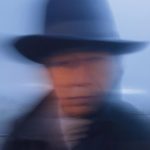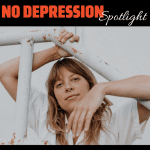10 Questions: Jessie Torrisi
Newly relocated singer-songwriter Jessie Torrisi left the Big Apple for Austin at the beginning of this year, following her musical dreams and creating her first record, Brûler, Brûler.
She took some time to talk with us about the move, being a drummer turned front-woman and the gift indie rock has given to the world.
Q: How did you decide to pack up and move?
A: I lived in New York City for ten years and I loved it but I got to the point where I was kind of, done. There were certain things I wanted and I knew there was just no way I would ever have them in New York. Some of it is things like nature but a lot of it is intangible like balance and being well-rested. A lot of people in New York are that way but they’re so hooked in they decide to stay. I think the thing that pushed me over the edge was the music.
There’s obviously a lot of great music and art in New York City but for me, every time I would leave, I lived in Brazil for four months and I lived in New Orleans one winter, I would go to places where it as more slowed down and lazy and I would be more productive. And it wasn’t so much sitting down to work, but a feeling like it was okay to be creative.
Q: What would you be doing if you weren’t playing music?
A: I went to a liberal arts college in Connecticut called Wesleyan and I did the very hard to explain maneuver of majoring in music and minoring in pre-med. I don’t think anyone who goes to Wesleyan has a set idea of what they want to do, I think I was torn. I was a really good student and I really liked science and my mom is a nurse who runs clinics and it’s a more concrete way to make a difference.
It took me a long time to totally give in to what I wanted to do. I wanted to play music but I didn’t want to end up like the guy in the suburbs of Philadelphia who taught drum lessons, that’s not rock ‘n’ roll. On one hand there were all these people who were very discouraging examples of a life in music and I didn’t want to be the nerdy guy with a bow tie teaching choir, I wanted to be a musician.
And you know that even if your family doesn’t say it outright, they’d much rather you be a doctor or a lawyer, anything where you don’t call them up every two months and complain about how you don’t know where you’re going to get next months rent.
Q: What were your first experiences with music?
A: My parents made me take piano lessons as a kid and I played saxophone and clarinet in the school band. But the real beginning was when I was 14 years old and I started playing drums. That was the first time was was like, “I love this and I want to practice.” I totally became obsessed with studying jazz, I went to music summer camp and tried to sneak in underage to some of the clubs in Philadelphia which at that time had really cool jazz clubs. That was the first wave of “This is it, this is what I want to do with myself.”
Q: How did you make the switch from drums to being more of a singer-songwriter?
A: There was this teacher who was everyone’s friend, she had a weekly meeting at the bar and people would go in there with their songs and it would be a lesson about musical theory and harmony but it was also a therapy session. I took a semester of lessons, but to play acoustic guitar you only need a few chords to start dabbling. It became a closet pursuit, I still was Drummer Girl, looking for bands but for a lot of years I’d sit in my bedroom and write songs but it was separate.
Q: Do you remember the first song you ever wrote?
A: When you write them at the time, you think it’s probably the most brilliant thing that’s ever happened in the history of the universe but then a few months later if they’re not in rotation in your set you almost forget they exist. The oldest song that I’ve written that I still play, “Storm Clouds,” which is on the record and the other one is a song called “Talk About You, Babe” which I demoed but never really recorded. They’re songs I wrote when I wasn’t thinking about it or trying to write a song, they just fell out. I had been going through the break-up from hell and when I wrote “Storm Clouds” it was kind of like the punctuation mark, it was this great moment of being able to step out of the clouds and see it for what it was.
Q: What about making the record stood out to you?
A: The process of making it blew my mind, I’d never done it before and there was no reason for me to believe that I knew how to make an album. I teamed up with William Berlind and I met with him and played 25 songs or so and right away he locked into the lyrics and which lines should be changed and which songs the words fit the music and we had this language. I knew he had my back and anytime that I was doing it not as good as it could have been done he saw that and explained how to fix it. It was like playing a game of imagination. Once we had the skeletons we’d sit around and say “I can kind of imagine a tuba… no I think we should have a whole bunch of glockenspiel, well what if we have a dog barking in the background.”
Q: So there was a lot of experimentation?
A: Well, I love music and I like art that’s really accessible, I put a lot of effort into speaking to people with the songs. Most of my songs are verse-chorus-verse-chorus and once in awhile I’ll deviate from that but any weird diversion that I have isn’t good enough to put on the album, it has to be really sharp and tight so I want to get experimental and weird with the production. I think that’s the gift that indie rock has given to us… there’s a lot that’s annoying about indie rock but what’s cool is the experimentation.
Q: What are some of your musical aspirations?
A: In terms of literal aspirations, I just want to go from dreaming about this being my life to this actually being my life. I think I’m half way there. I want to be out of the road, I want to be opening for bands that I’ve admired.
Creatively, which is a much harder question to answer, the last record was all bout desire and what goes wrong and right when you chase it, mostly from a romantic point of view, like “go kiss the girl.” And I think in terms of lyrical content, this next record is going to be the same, there’s going to be a few more things about love can actually go right and I think it’s going to be a lot about chasing desire from the perspective of “do what you want to do with your life and don’t be afraid.”
Q: Who are some of your inspirations?
A: All the old Motown people. Like Otis Redding, I love the way he sings, the way he moves on stage, I love the lyrics they’re so simple but they say so much. I feel that way about some of the old jazz songs as well, there’s a lot of Cole Porter songs that are kind of naughty and yet so very clever and honest.
In terms of contemporary music – Feist, Regina Spektor, Elvis Perkins in Deerland. And Stevie Wonder at Jazz Fest blew my mind. And people like Rufus Wainwright and Joan As Policewoman that are like, “I have a big voice and I’m not afraid to use it.” That I really admire.
Q: You had lost your drummer before the Colorado tour, will you continue as a three-piece?
A: We’re going to see how far we can take it as a three-piece. I’m going to try drumming and singing on few songs or see if we can loop a drum beat. I have a band where everybody plays more than one instrument so I feel like we should play musical chairs more than we’ve worked it out so far.
I don’t know if it’s going to work, but I feel like there’s all these great innovative trios and that the less people you have the more you have to dig deep and see how you can use everything. There’s some guitar solos that get dropped or some layering but you’re left with this feeling of creativity or watching somebody do backflips on the rock ‘n’ roll stage.
Visit JessieTorrisi.com for more info.
Originally posted on UncommonMusic.org
Photo: Todd Chalfant




